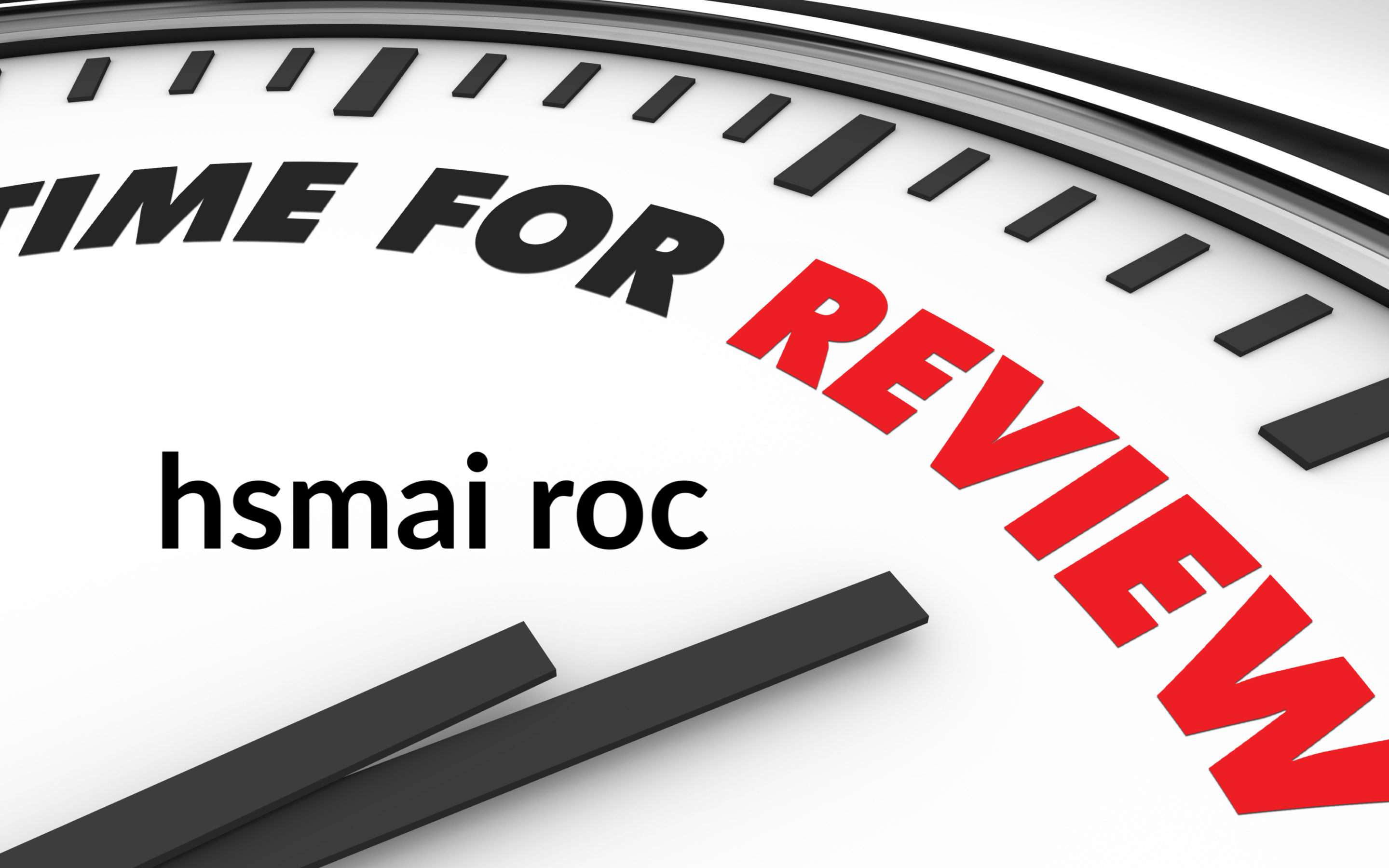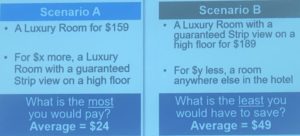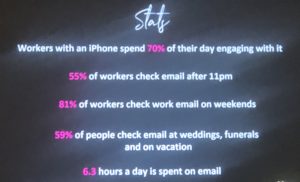HSMAI Roc Conference 2019 was held in Minneapolis in June 2019 and its focus is Hotel Revenue Management.
While there were a lot of “ask yourself these questions” that got the wheels turning, there were very few “here are some solutions/things to try”.
I agree that we have to move from simple revenue “management” to revenue “strategy”. And the technology is important to ensuring this shift happens.
Most of the breakouts, oddly enough, were put on by digital marketing agencies. HSMAI has a separate conference, HSMAI Digital, focused on digital marketing, so I’ll refrain from repetition. (Milestone presented on voice search and schema, which was worthy.)
Hotel Revenue Management of the Future
Here are some highlights from fellow Virginia Tech Hokie, keynote speaker Dave Roberts as he talked about how revenue management must shift now and into the future.
- Forecasting – Better utilization of machine learning software should enhance our results, not scare us. In tracking and reporting, how can we be action-oriented in our approach and learn from forecast errors? At the same time, understand when it doesn’t matter. For meetings and events, forecasting can be done better as it relates to wash and attrition.
- Pricing Science – Too much of the time, general managers and revenue managers are overriding the recommendation engine. Are we tracking that impact to see if we made the right choice? Can we expand our pricing methodology to better understand price elasticity on specific rates, like an LNR account?
- Full Hotel Revenue Management – Do we do a great job forecasting all revenue streams, from restaurants to valet parking? In restaurant revenue management, are we comparing seat vs table occupancy?
- Distribution & Marketing – Revenue management needs to be involved in digital. Can I get an AMEN! Revenue management teams should get involved in acquisition, retention and demand capture. At the same time, beware of false sense of reporting and testing. To further expand on this, it should be Revenue Management, Marketing, Sales and IT that belong on the strategy team. Break down the silos!
- Talent Development – The others don’t matter if you don’t do this one right.
10 Considerations for Pricing at a Room Type Level
Thank you to Julie Abou Nohra & Dan Skodol for having the most actionable presentations at the conference! Their presentation on better merchandising at a room type level had tidbits you could take advantage of immediately.
One of the questions to ask yourself: Are you building a customer acquisition strategy for each room type? A simple run of the house room type may be a need-purchase that is functional and best sold online. Some premium room types are a want-purchase that is more emotions that is best sold one on one.
Here are their considerations for pricing by room type:
- Measure the results/benefits of your room type pricing efforts.
- Balance product offerings/price points with a customer-friendly approach. Can the customer appreciate the value across your room types, or are there too many similarities? Understand your room type differences.
- Leverage opportunities for bundling at check-in. An example would be to encompass your resort fee with a room upgrade.
- Know (and discover) online merchandising best practices. The ability to sort on price like low to high, high to low, what filters are available, etc. Consider partnering higher room type with an offer.
- Understand how many products you have to price. Look at the various touchpoints like pre-stay emails and check-in for upsells.
- Competitive pricing may not matter at this level.
- According to psychology, relative pricing matters. Our brains make a judgment on contrast.
- Don’t get hung up trying to measure elasticity. Does higher demand equal higher price?
- Heuristics are your friend.
- Start simple! Start with the data and understand the process.
Hotel Data Science
Michael Bennet of Cendyn presented on data science, which had a few good considerations. Again, great insight to get the wheels turning, but not exactly a how-to.
Revenue Managers are generally numbers-oriented people. But, they get stuck in their regular reports with the same data. If the numbers don’t align, there is a “best guess” at the cause. If the system doesn’t identify the trends, they don’t look any deeper.
- Steal ideas from more progressive verticals like retail
- Foundationally, ensure you have the tools to bring those data points together and the defined KPIs to solve business problems. (You can start with a free one like Google Data Studio.)
- Question your mindset: Am I ready to learn from what the data is telling me?
Self Reflection
These last few things have NOTHING to do with revenue management, but Judi Holler (author, comedian, keynote speaker) is great!
- Most fears are based off one of these: comparison, self doubt, comfort zone, procrastinate, miss opportunities, quit, regret
- Babies laugh 300 times a day; adults 4. (This sucks! How can we change?)
- If someone is making excuses, ask what they are afraid of.
- On average, we spend 6.3 hours a day on email. (Again, this sucks! Again, change it.)
- If someone doesn’t remember you, you are not memorable. (Ouch!)
- Fear fear less and get comfortable being uncomfortable. (No, that is not a typo.)
The networking and smaller event feel at HSMAI Roc makes the event worth going to. You can have one on one conversations with vendors quite easily. And, as an attendee, you can get access to HITEC for free.



